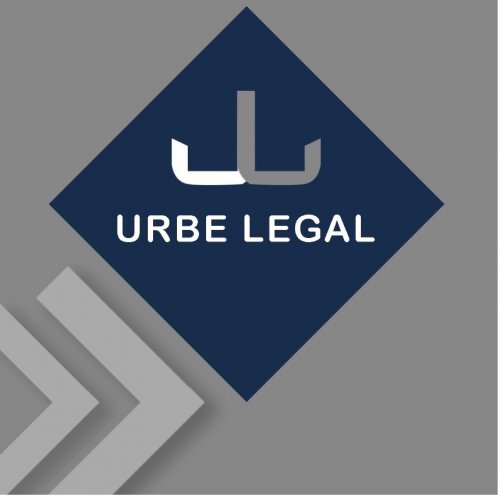Best Landlord & Tenant Lawyers in Guatemala
Share your needs with us, get contacted by law firms.
Free. Takes 2 min.
Free Guide to Hiring a Real Estate Lawyer
Or refine your search by selecting a city:
List of the best lawyers in Guatemala
About Landlord & Tenant Law in Guatemala
Landlord and tenant law in Guatemala is governed by various regulations designed to establish the rights and responsibilities of both parties in rental agreements. These laws regulate aspects such as lease agreements, rent control, tenant protections, and eviction processes. The goal is to create a fair and balanced legal framework that protects both landlords and tenants, ensuring smooth and mutually beneficial occupancy arrangements.
Why You May Need a Lawyer
There are several situations in which someone involved in a landlord-tenant relationship might need legal advice or representation in Guatemala:
- Disputes over lease terms or rental payments.
- Issues related to eviction, either for the landlord trying to evict a tenant or a tenant facing eviction.
- Clarification of tenant rights and responsibilities.
- Drafting or reviewing lease agreements.
- Disputes over property maintenance and repairs.
- Cases involving discrimination or harassment.
- When facing lawsuits or legal notices as either a landlord or tenant.
Local Laws Overview
In Guatemala, landlord and tenant relationships are primarily governed by the Civil Code and other specific legislative acts aimed at regulating rental agreements. Key aspects include:
- Lease Agreements: Formal written contracts are strongly recommended to detail all terms, although verbal agreements are also recognized but harder to prove.
- Rent Control: There are no national rent control laws, but regional variations may exist.
- Tenant Rights: Tenants have the right to a habitable living environment and protection against unjust eviction.
- Eviction Procedures: Evictions must follow legal procedures, including proper notice and just cause.
- Security Deposits: Limits and regulations can govern the use and return of security deposits.
Frequently Asked Questions
What should be included in a lease agreement?
A lease agreement in Guatemala should outline the terms and conditions of the rental, including rent amount, payment schedule, lease duration, repair responsibilities, and termination conditions.
Can a landlord increase rent arbitrarily?
Landlords can raise rent, but increases must comply with the terms agreed upon in the lease, and tenants should be notified well in advance.
What are a tenant's basic rights?
Tenants have the right to a safe and habitable living environment, privacy, and protection from unlawful eviction.
How can a tenant protect themselves against eviction?
Tenants should ensure they meet all their contractual obligations, such as paying rent on time, and keep records of communications and payments.
What is the legal procedure for eviction?
Eviction requires a legal notice and sometimes judicial intervention if the tenant does not vacate willingly. Just cause and proper documentation are essential.
How are security deposits handled?
Security deposits should be returned at the end of tenancy, minus any legitimate deductions for repairs or unpaid rent, as outlined in the lease agreement.
What should tenants do if repairs are not made?
Tenants should formally request repairs from the landlord. Documentation is key. If ignored, tenants may seek legal advice or assistance.
Can a landlord enter the rented property without notice?
Landlords generally need to provide notice before entering for inspections or repairs, respecting tenant privacy rights.
What can a tenant do if they face harassment from their landlord?
Tenants facing harassment should document incidents and seek legal advice to explore protection and action options.
When can the tenant terminate the lease ahead of time?
Tenants can terminate leases early if conditions in the contract allow or if landlords breach significant terms. Proper notice must be given.
Additional Resources
For additional support, tenants, and landlords can reach out to the following entities:
- The Guatemalan Ministry of Housing (Ministerio de Vivienda): Offers resources related to housing regulations.
- Legal aid clinics: Many universities and non-profits offer free or low-cost legal aid for landlord-tenant issues.
- Consumer protection agencies: May provide guidance and support for tenant rights issues.
Next Steps
If you require legal assistance in landlord and tenant matters in Guatemala, consider the following steps:
- Document all relevant information, including contracts, communications, and incidents related to your case.
- Consult a legal professional specializing in landlord-tenant law to assess your situation and options.
- Consider mediation as a first step if both parties are willing to negotiate outside of court.
- If necessary, proceed with legal action in accordance with local law, ensuring that you have competent legal representation.
Lawzana helps you find the best lawyers and law firms in Guatemala through a curated and pre-screened list of qualified legal professionals. Our platform offers rankings and detailed profiles of attorneys and law firms, allowing you to compare based on practice areas, including Landlord & Tenant, experience, and client feedback.
Each profile includes a description of the firm's areas of practice, client reviews, team members and partners, year of establishment, spoken languages, office locations, contact information, social media presence, and any published articles or resources. Most firms on our platform speak English and are experienced in both local and international legal matters.
Get a quote from top-rated law firms in Guatemala — quickly, securely, and without unnecessary hassle.
Disclaimer:
The information provided on this page is for general informational purposes only and does not constitute legal advice. While we strive to ensure the accuracy and relevance of the content, legal information may change over time, and interpretations of the law can vary. You should always consult with a qualified legal professional for advice specific to your situation.
We disclaim all liability for actions taken or not taken based on the content of this page. If you believe any information is incorrect or outdated, please contact us, and we will review and update it where appropriate.
Browse landlord & tenant law firms by city in Guatemala
Refine your search by selecting a city.











